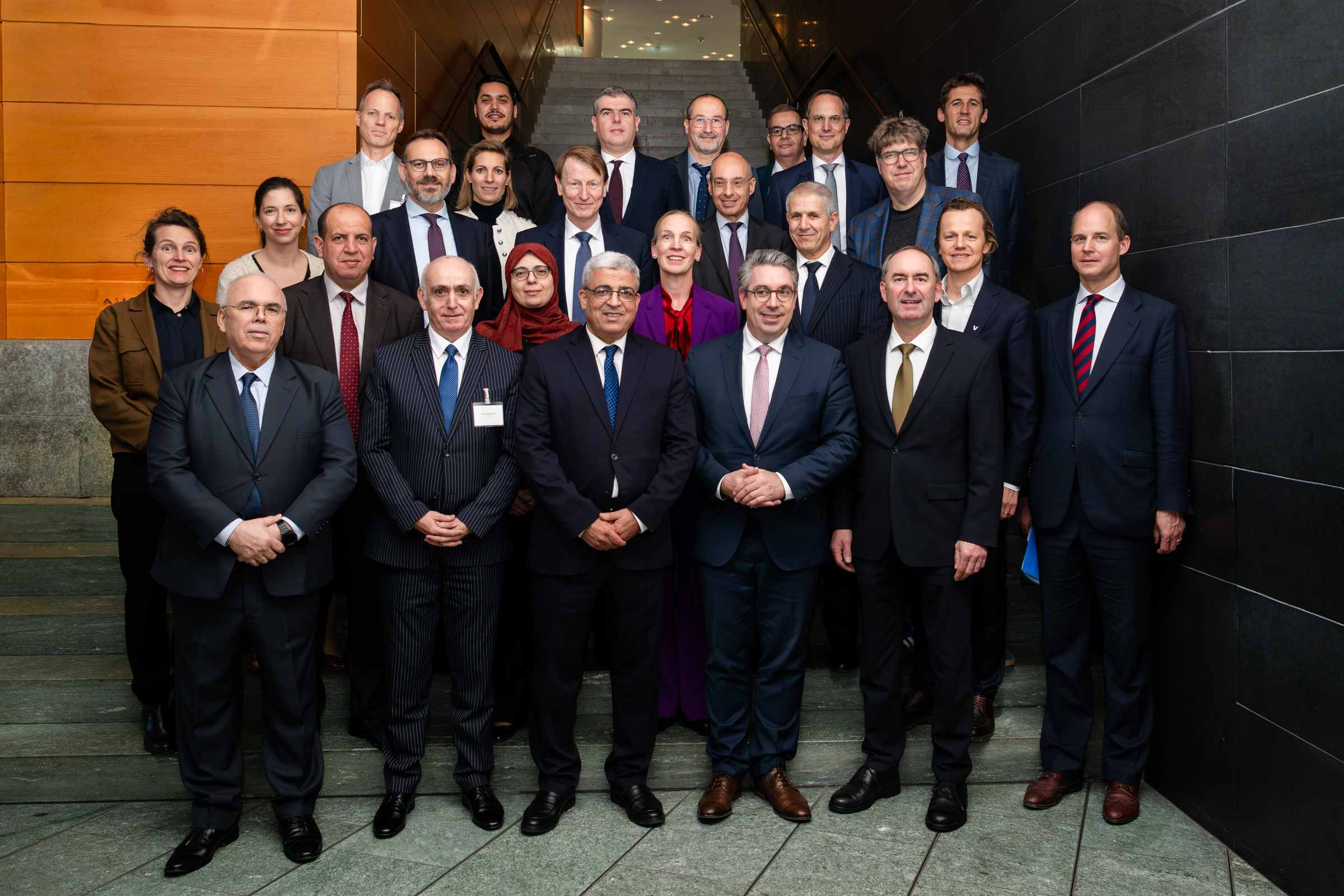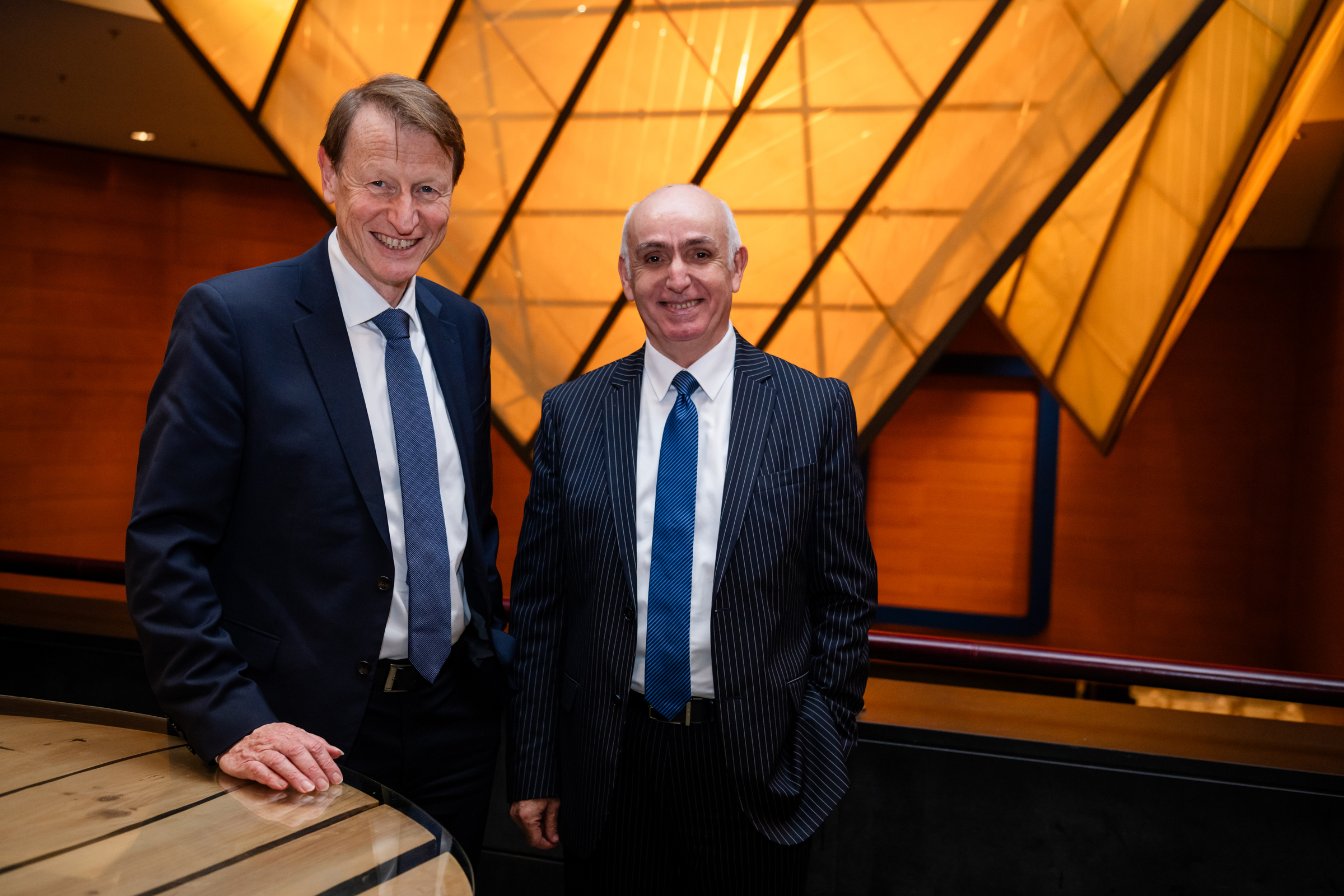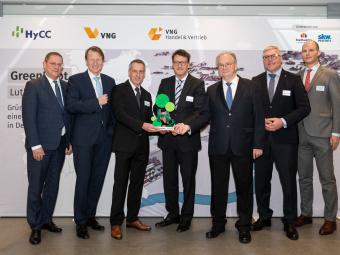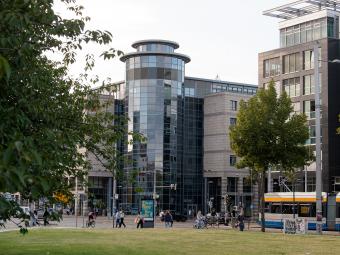Green Hydrogen for Europe: ALTEH2A and SoutH2 Corridor advance the vision of hydrogen imports from Algeria.
Yesterday, the partner companies of the international projects ALTEH2A and SoutH2 Corridor – including the Leipzig-based energy company VNG AG and the Bavarian transmission system operator bayernets GmbH – presented the current status of their projects at an event in Berlin. Both projects are guided by the vision of enabling the future import of green hydrogen from Algeria to Europe. The event, titled “Success Factors for Hydrogen Pipeline Import from Algeria,” marked the kick-off for the pre-feasibility study in the ALTEH2A project. The study will analyze hydrogen production sites in Algeria for green hydrogen, possible routes, and market potential in Europe. Initial strategic insights for building a future hydrogen infrastructure between Algeria and Europe are expected in the second half of 2026.
In October 2024, VNG AG signed a memorandum of understanding with Algerian energy companies SONATRACH and Sonelgaz, Italian transmission operator Snam, infrastructure company SeaCorridor, and Austrian energy group VERBUND to launch the ALTEH2A project (Algeria to Europe Hydrogen Alliance). The partners intend to jointly assess whether large-scale production of green hydrogen in Algeria is technically and economically feasible and its transport to Europe via the planned SoutH2 Corridor is a realistic option.
Ulf Heitmüller, CEO of VNG, emphasizes the importance of the project “We are pleased to join forces with our outstanding international project partners to send a strong signal for the ramp-up of hydrogen in Europe. The partnership with Algeria and the development of a cross-border hydrogen infrastructure via the SoutH2 Corridor creates the opportunity to bring green hydrogen to Europe on a large scale and at competitive prices. In doing so, we are making a decisive contribution to security of supply and the decarbonisation of our industry. The project opens the door to successfully continuing the trusted energy relationship with partners in Algeria even in a decarbonized future. Algeria has outstanding potential for green hydrogen. We want to unlock this together.”
Together with Austrian and Italian partners GCA, TAG, and Snam, bayernets GmbH is developing the 3,300-kilometer SoutH2 Corridor, which connects North Africa, Italy, Austria and Germany. The single projects of the import corridor have been designated as a Project of Common Interest (PCI) by the European Commission, underscoring its strategic importance for cross-border energy infrastructure. In January of this year, a joint declaration of political support for the Southern Hydrogen Corridor was signed by Algeria, Tunisia, Italy, Austria and Germany. HyPipe Bavaria- The Hydrogen Hub is the PCI project developed by bayernets. It ensures the transport of hydrogen from the Austrian import point to industrial clusters in Bavaria and to the north and southwest of Germany.
Nour Eddine DAOUDI, CEO of SONATRACH highlight that thanks to Algeria’s abundant natural resources, its existing energy infrastructure and its strategic geographical location, the country ambitions to become a hub of renewable clean energy production and export, particularly in green hydrogen. Committed to supporting the energy transition towards a sustainable green economy and relying on Algeria’s substantial renewable energy resources, the ALTEH2A Alliance is exploring opportunities for green hydrogen production in Algeria to supply the European market through the Southern Corridor, thereby creating new prospects for sustainable growth and international cooperation. He also pointed out that Algeria H2 Europe (ALTEH2A) project is a concrete model of an energy partnership between Algeria and the countries of the European Union, based on common interests.
Dr. Matthias Jenn, CEO of bayernets GmbH, says: "The production of hydrogen and the transport-infrastructure must be developed in parallel. Our joint event has once again underlined this premise for a successful hydrogen ramp-up in Europe. The SoutH2 Corridor partners are creating the infrastructural preconditions for accessing green hydrogen sources in North Africa. It is now essential that de-risking concepts are developed for the import corridors so that investment decisions can be made quickly. In the long term, this will strengthen our industrial sectors in all involved countries.”
Central to the discussions under the were the economic opportunities arising from deeper energy cooperation between Europe and North Africa, the global relevance of scaling up the hydrogen economy, the preconditions for the ramp-up of the import corridors and the prerequisites for binding offtake agreements. These themes reflect the growing strategic importance of hydrogen, which plays a pivotal role in enabling the decarbonization of hard-to-electrify sectors such as industry and heavy transport. The development of an international hydrogen infrastructure, including cross-border pipelines, is seen as a key lever to strengthen the EU’s energy sovereignty and competitiveness in the global market.

Press picture

High-ranking representatives from business and politics at the event „Success Factors for Hydrogen Pipeline Import from Algeria”

Ulf Heitmüller, CEO of VNG and Nour Eddine Daoudi, CEO of SONATRACH





